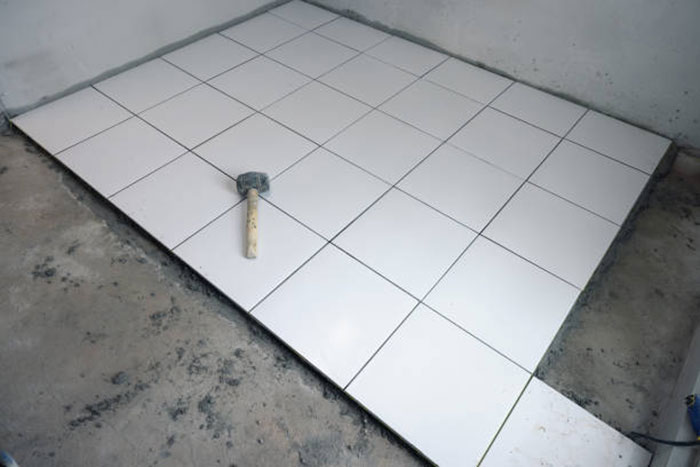When it comes to showers, grout is the important barrier that keeps water from seeping beneath your tiles and causing damage to the structure behind. Choosing the right grout for your shower can mean the difference between a durable, watertight seal and costly future repairs. With various types of grout available it’s important to understand your options. As experts in shower repairs and grout replacement, Perth’s My Shower uses world-class Epoxy products for long-lasting and cost effective shower repair solutions. Here we will explore some of the different types of grout and help you determine which is best suited for your shower repair to ensure a long-lasting, leak-proof result.
What is Grout and Why is It Important?
Grout is a crucial component in tile installation, serving as the filler material between tiles. Typically composed of a mixture of water, cement, and sand, grout provides both aesthetic and functional benefits. It comes in various types each suited for different applications based on the size of the grout joints.
One of the primary purposes of grout is to prevent moisture from penetrating beneath the tiles, which can lead to mould growth and structural damage. Additionally, it helps stabilise tiles by holding them firmly in place and preventing movement that could result in cracking or chipping.
Beyond its practical applications, grout also plays an essential role in the overall appearance of tiled surfaces – The colour and finish of grout can enhance or detract from the design aesthetic of a space.
The Main Types of Grout
Sanded Grout – This type contains sand particles, making it ideal for larger joints (typically 1/8 inch or wider). Sanded grout provides strength and prevents shrinkage, making it suitable for floors and walls in high-traffic areas.
Unsanded Grout – Unsanded grout is smoother and does not contain sand, which makes it perfect for smaller joints (less than 1/8 inch). It’s commonly used for delicate tiles like glass or polished marble where scratching could be an issue.
Epoxy Grout – Known for its durability and resistance to stains, epoxy grout is a mixture of epoxy resins and hardeners. It’s waterproof and ideal for areas exposed to moisture, such as kitchens and bathrooms. However, it can be more challenging to work with due to its quick-setting nature.
Furan Grout – Similar to epoxy but made from polymers derived from furfuryl alcohol, furan grout offers excellent chemical resistance and durability. It’s often used in industrial settings where exposure to harsh chemicals is common.
Epoxy Grout – Benefits and Best Applications for Durability
Epoxy grout is a highly durable and versatile material that has gained popularity in recent years. One of the main benefits of epoxy grout is its exceptional resistance to moisture, stains, and chemicals, making it an ideal choice for areas high-moisture areas that require frequent cleaning like showers. Unlike traditional cement-based grouts, epoxy grout forms a dense, non-porous surface that prevents water infiltration and minimises the risk of mould and mildew growth.
Additionally, epoxy grout offers superior adhesion properties, ensuring that tiles remain securely in place over time. This characteristic makes it suitable for high-traffic areas such as commercial kitchens, bathrooms, and outdoor patios where durability is paramount. Epoxy grout comes in a wide range of colours and finishes, allowing homeowners and designers to achieve their desired aesthetic while still benefiting from the material’s strength.
Choosing the Right Grout for Your Project – Factors to Consider
Type of Tile – Different tiles require different types of grout. For instance, porous tiles like natural stone benefit from a sanded grout that prevents moisture absorption, while ceramic or porcelain tiles can use unsanded grout for a smoother finish.
Location – Consider where the tiles will be installed. Areas exposed to water, such as bathrooms and kitchens, may require waterproof or mould-resistant grouts to withstand humidity and prevent deterioration.
Joint Width – The width of the joints between tiles also influences your grout selection. Sanded grout is typically used for wider joints while unsanded grout is more suitable for narrower joints.
Colour – Grout colour can significantly impact the overall look of your tiled surface. Lighter colours may show stains more easily but can create an elegant appearance, while darker colours offer a contemporary feel and better conceal dirt.
Each type of grout has its unique properties suited to different environments and tile types. Choosing the right grout for your project will help to ensure long-lasting results that enhance the beauty of your tiled surfaces while providing necessary protection against moisture and wear.
Looking for a grout repair specialist? Perth homes and businesses can trust My Shower for fast, effective, and affordable grout repairs. Request a free quote online now or call 1300 055 088 to speak with our friendly staff.

